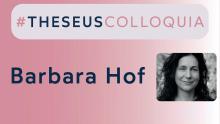Fusion Imperfect: Cooperation, Coordination and Competition in an Emerging Research Field
Fusion science attracts a lot of attention today because of associated hopes for a carbon-free energy source. It is mostly known through the International Thermonuclear Experimental Reactor (ITER), a testing facility being built in Southern France. Less well known is the fact that the first explorations into fusion - the combination of atomic nuclei to release more energy - were carried out as early as the 1950s. Even less well known is the fact that the CERN laboratory in Geneva set up a study group on the subject in 1958 in response to the hopes that had been pinned on fusion science. Then as now, researchers sought to create an artificial fusion reaction as a basis for energy production to meet rising consumption. Using the example of CERN’s study group, this talk looks at the pioneering phase of fusion science and the hopes it raised. It illustrates the difficulties in coordinating between various research teams and integrating different experimental approaches when (peaceful) fusion research was still an emerging field. The talk aims to invite discussion both on the nature of scientific cooperation at the beginning of European integration and on the problem of postponing technical solutions into the future.
Speaker: Barbara Hof, postdoc at the University of Lausanne, Switzerland. Her research focuses on the role of scientific knowledge in international relations. She has published several articles on the history of technologies in education and is now exploring two main topics: first, how the computer changed the physical sciences from 1960-1990 and, second, the early history of fusion science in Europe.
Introduction: Roberto Lalli (lecturer in History of Science and Technology, Politecnico di Torino)
